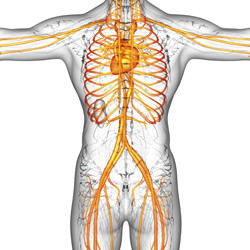Translational research in vascular science
The project 'Translational science for vascular inflammation and remodelling' (TRANSVIR) implemented a training programme and spearheaded a European network focused on translational science in the field of vascular science. Translational science is a multidisciplinary form of practice that aims to bridge the gap between scientific research and industry. Initial project goals were to create an international multidisciplinary programme of translational research in the field of inflammatory vascular disease; promote cooperation between the fields of biology, clinical research and applied research; and implement a training programme for early-stage researchers (ESRs) and experienced researchers (ERs). The purpose of the training programme was to prepare researchers for careers in either academia or industry. At the onset of the project, the TRANSVIR network had 11 ESRs, mostly from the EU, and 1 ER, 4 academic institutions and 2 industry partners. The network encompassed rigorous training in a specific translational discipline; broader training in translational science; a targeted training programme for generalisable skills for biomedical scientists; and specific training for skills required by scientists in industry. The network also included a unique programme to facilitate mobility of scientists throughout Europe. ESRs were given interrelated projects, providing maximum opportunities for collaboration. To date, all of the ESRs have completed the experimental work for their PhDs. The network held two state-of-the-art meetings, 'Immunology of Renal Disease' and 'Systems Biology'. Project work was presented at 26 international and national meetings and published in several papers. An industry partner has commercialised three assays developed within the project, and three other industry partners are negotiating to commercialise research findings from other academic partners. Increased collaboration between industry and academia in the field of vascular science has the potential to increase the production of new technologies, expedite the negotiation process between researchers and industry partners, and increase collaboration between researchers and industry partners. Ultimately, such advances benefit patients who rely on the technologies and innovations developed through these collaborative efforts.



